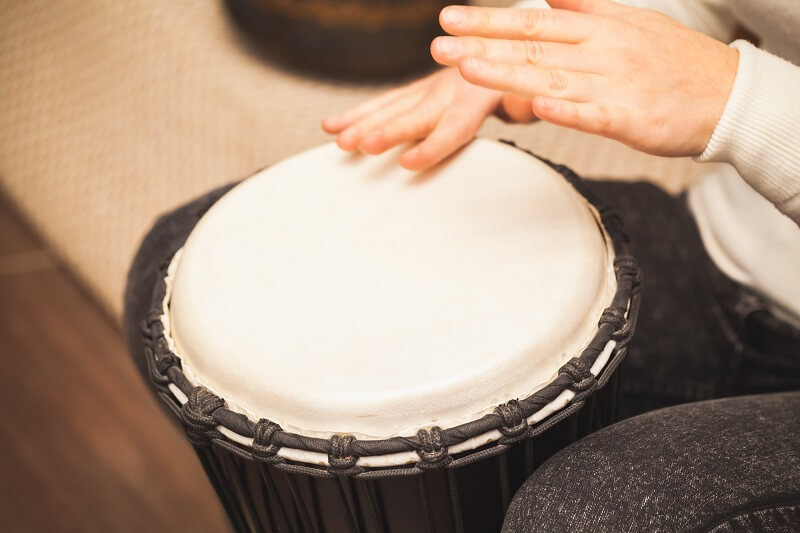Quitting drinking or using drugs is the obvious end goal of drug and alcohol treatment. However, recovery from addiction encompasses far more than simply abstaining from using. The Substance Abuse and Mental Health Services Administration says that recovery is a “process of change through which individuals improve their health and wellness, live a self-directed life, and strive to reach their full potential.”1 These are, after all, the things that lead to authentic happiness, and people who are authentically happy don’t typically feel a need to abuse drugs and alcohol.
The pathways that lead to the process of change are countless, and for some, there are many effective options. Since there is no single path to recovery, drug and alcohol treatment should include a variety of both traditional and complementary therapies. This combination allows clients to address a range of issues from many different angles to work through them and increase self-awareness.
Complementary therapies for addiction have been shown through research to be effective when they’re used along with traditional therapies like cognitive-behavioral therapy. Art therapy and music therapy are particularly suited to drug and alcohol treatment programs, along with yoga, nature therapy and mindfulness meditation.
Drumming for Recovery
Drumming is a form of music therapy that’s been shown to reduce stress and promote relaxation, according to an article in the Journal of Addictions Nursing. Drumming and other forms of music therapy increase engagement in treatment and can help reduce anxiety, depression and anger.2
Author and drummer David Hickman facilitates drumming circles at Roots Through Recovery to help clients along in their healing process. Hickman, a pastor who’s in long-term recovery himself, describes a drumming circle as a safe place where individuals are free to express themselves through drums and other instruments, without judgment or expectations. “In this space,” Hickman says, “participants get in touch with the rhythm that starts with their heartbeat and grows from there, and transforms them into a place of well-being.”
“I have seen people get in touch with a range of emotions as they get out of their head and let their feelings free.” Hickman says participants may experience a decrease in anxiety, tears of joy and tears of sadness. People’s “body language changes as they let down their guard and begin to connect with themselves and others in the circle.”
Hickman began drumming four years ago and found it a powerful practice that took his own recovery to a whole new level. His experience was so profound that he knew he wanted to share it with others in recovery. “Once I made that decision, unseen doors began to open up and continue to do so,” he says.
Drug and Alcohol Treatment Gets Spiritual
Drum therapy promotes a sense of spiritual connection with others and reduces feelings of isolation, according to a report published in the American Journal of Public Health.3 Drumming is among a variety of experiential treatments for addiction that help clients work through obstacles, connect their thoughts to their behaviors and develop higher self-esteem and self-awareness. Drumming, according to the report, promotes the release of emotional trauma and connects drummers with a higher power.
Many of the participants in Hickman’s drumming circle report feeling a spiritual connection for the first time ever, or for the first time in a long time. “I have seen people get in touch with a range of emotions as they get out of their head and let their feelings free. People feel relief during drumming,” he says.
The Unique Benefits of Drumming
Every individual experiences unique benefits from the drumming circle, depending on their circumstances and needs. “A person may drum away stress, anxiety or pain,” says Hickman, while others find that drumming “releases rage and anger held in the body.”
Hickman says that drumming has been overlooked by the therapeutic community for drug and alcohol treatment, although that’s beginning to change. “Our ancestors have known its importance since earliest recorded history. We’re catching up to the wisdom of our ancestors.”
Roots Through Recovery will be celebrating their one-year anniversary on February 6, and Hickman will conduct a healing drumming circle as part of the festivities. The day’s events also include a guided meditation session led by Lauren Emmel, a somatic experiencing session led by Larry Kessler and a presentation on opioid addiction by Todd “Z-Man” Zalkins. Zalkins’ recently released film “The Long Way Back” covers his own journey through addiction and into recovery.
At Roots, we offer drug rehab in Long Beach as well as sober living options. Visit 3939 Atlantic Ave, Suite 102 Long Beach, CA 90807 or call (866) 766-8776 for immediate assistance.




